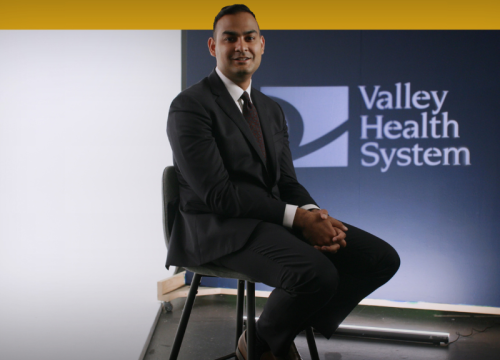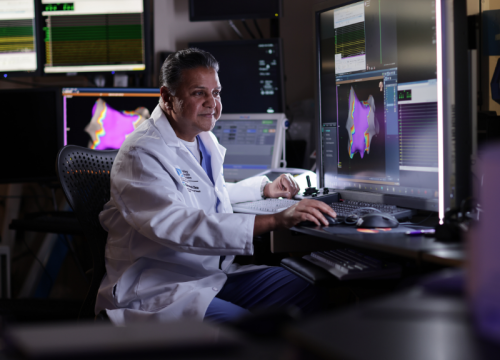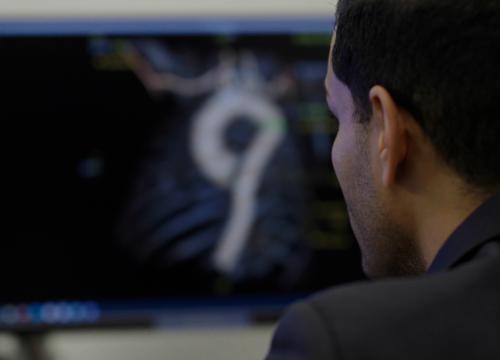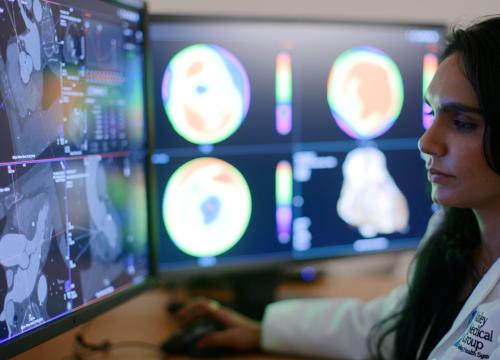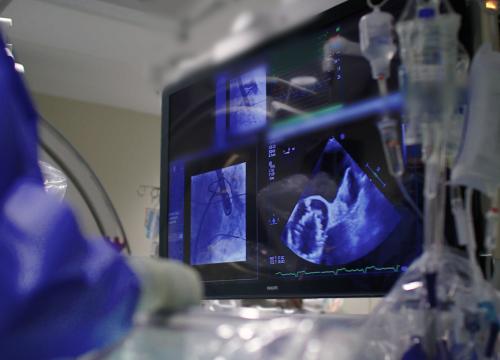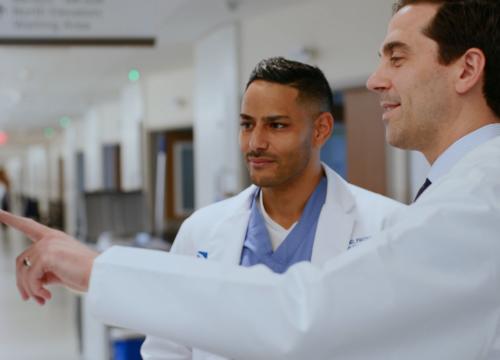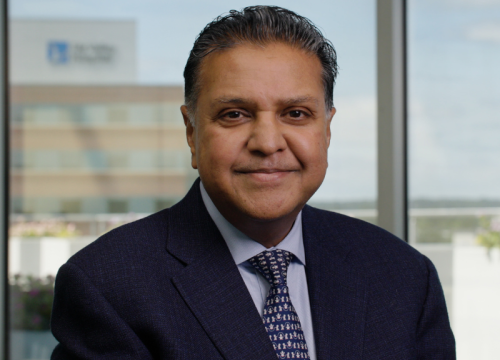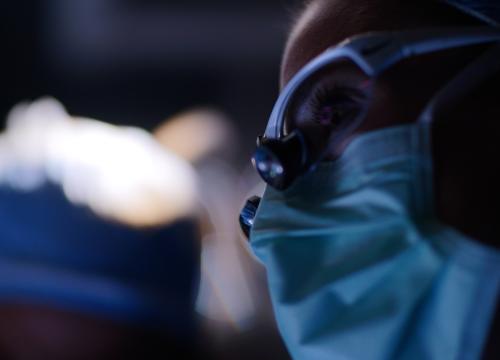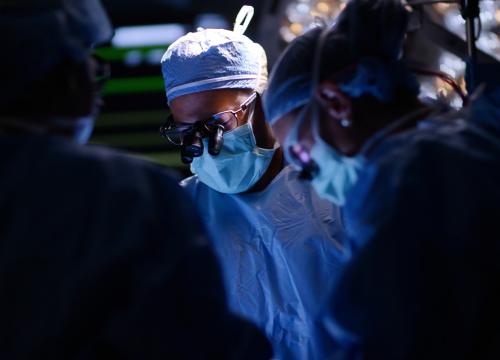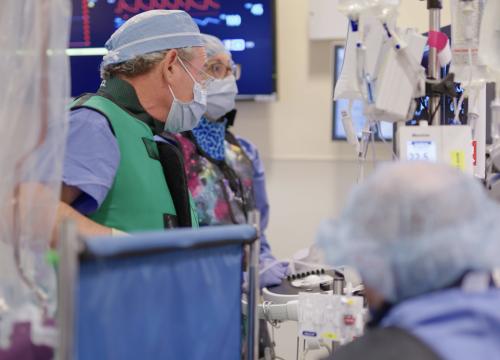Cardiac amyloidosis, also known as stiff heart syndrome, occurs when abnormal proteins, called amyloid fibrils, accumulate in the heart and surrounding tissues. This causes the heart muscle to become stiff and thicken. This condition can affect the proper function of the heart and can lead to heart failure symptoms. It is one of the most common types of restrictive cardiomyopathy.
The two most common types of cardiac amyloidosis are amyloid light-chain (AL) amyloidosis and transthyretin (ATTR) amyloidosis. AL amyloidosis is a result of light chain proteins that are produced by plasma cells in bone marrow. ATTR amyloidosis is caused by a protein produced in the liver.
Symptoms of Cardiac Amyloidosis
- Fatigue
- Weakness
- Shortness of breath
- Dizziness
- Swelling in the abdomen or legs
- Chest pain
- Arrhythmias
Cardiac Amyloidosis Diagnosis at Valley
Cardiac amyloidosis can be diagnosed in a variety of ways including:
- Bloodwork
- Urine test
- Cardiac imaging, including echocardiogram, MRI, and electrocardiogram
- Biopsy
Cardiac Amyloidosis Treatment at Valley
At Valley, our Center for Heart Failure Care team is trained in the diagnosis and treatment of cardiac amyloidosis. Treatment options may vary depending on the type of cardiac amyloidosis you have.
Treatment options may include:
- Chemotherapy
- Medications
- Lifestyle changes to assist in effects of cardiac amyloidosis
Why Choose Valley for Cardiac Amyloidosis Care?
- A team dedicated to you: At Valley, you’ll get team-based care from cardiologists, electrophysiologists, heart surgeons, interventional cardiologists, heart failure nurses, and others.
- Expertise in diagnosing heart failure: Many patients come to us after a long diagnostic journey that has yielded no answers. Our team’s expertise combined with the latest cardiac imaging technology and procedures allows us to make complicated diagnoses with tremendous precision.




